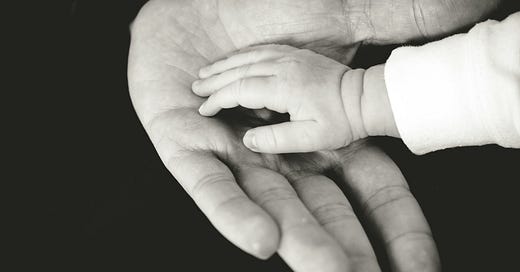Have you ever watched a game show contestant whiff on an easy question, and shout at the TV: “Come on, even I knew that one!”
I’ve worked on a few game shows, and I can tell you, when you’re there, with the lights and the mics and the cameras, and the whole crowd watching you, it’s not easy.
In much the same way, we can look back at the first Christians and think, “What are you doing?” We can easily fall into the trap of thinking we’d be more faithful, more insightful, more righteous.
But we probably wouldn’t be.
Reading I
Acts 6:1-7
As the number of disciples continued to grow, the Hellenists complained against the Hebrews because their widows were being neglected in the daily distribution. So the Twelve called together the community of the disciples and said, “It is not right for us to neglect the word of God to serve at table. Brothers, select from among you seven reputable men, filled with the Spirit and wisdom, whom we shall appoint to this task, whereas we shall devote ourselves to prayer and to the ministry of the word.”
The proposal was acceptable to the whole community, so they chose Stephen, a man filled with faith and the Holy Spirit, also Philip, Prochorus, Nicanor, Timon, Parmenas, and Nicholas of Antioch, a convert to Judaism. They presented these men to the Apostles who prayed and laid hands on them. The word of God continued to spread, and the number of the disciples in Jerusalem increased greatly; even a large group of priests were becoming obedient to the faith.
There’s a concept called Dunbar’s Number,1 which refers to the maximum number of people that an individual can recognize as, well, people. You have close friends and family, then your social circle and work colleagues, and maybe passing acquaintances. Beyond that, while you obviously can recognize a stranger as a human being on the street, you don’t treat them the way you would your sibling or spouse. We just don’t have the capacity to care about that many people.
The number of people we can care about, theoretically, is Dunbar’s Number: 150.
As the Christian community grew, I think they were starting to bump into this fact. Certain sub-groups were being treated differently than other sub-groups.2 The Twelve Apostles simply couldn’t manage all of the faithful. Besides, their job was supposed to be spreading the Gospel, which meant bringing in even more people.
So, they separated the tasks of preaching and distributing the wealth. This is the first time we see the laying on of hands as a form of ordination, and the start of Apostolic succession.
This story also introduces St. Stephen, who may or may not regret taking a leadership position in the Church.
Responsorial Psalm
33:1-2, 4-5, 18-19
R. Lord, let your mercy be on us, as we place our trust in you.
Exult, you just, in the LORD;
praise from the upright is fitting.
Give thanks to the LORD on the harp;
with the ten-stringed lyre chant his praises.
R. Lord, let your mercy be on us, as we place our trust in you.
Upright is the word of the LORD,
and all his works are trustworthy.
He loves justice and right;
of the kindness of the LORD the earth is full.
R. Lord, let your mercy be on us, as we place our trust in you.
See, the eyes of the LORD are upon those who fear him,
upon those who hope for his kindness,
To deliver them from death
and preserve them in spite of famine.
R. Lord, let your mercy be on us, as we place our trust in you.
As today’s Gospel shows, we sometimes don’t recognize a miracle that’s happening right before our eyes. A Psalm like this is a good reminder to be grateful for all the things God has given us.
Alleluia
R. Alleluia, alleluia.
Christ is risen, who made all things;
he has shown mercy on all people.
R. Alleluia, alleluia.
Unlike those of us who are merely human, Jesus isn’t limited by Dunbar’s Number. He really can care about all people.
Gospel
Jn 6:16-21
When it was evening, the disciples of Jesus went down to the sea, embarked in a boat, and went across the sea to Capernaum. It had already grown dark, and Jesus had not yet come to them. The sea was stirred up because a strong wind was blowing. When they had rowed about three or four miles, they saw Jesus walking on the sea and coming near the boat, and they began to be afraid. But he said to them, “It is I. Do not be afraid.” They wanted to take him into the boat, but the boat immediately arrived at the shore to which they were heading.
Strange how the apostles see Jesus literally walking on water—which we now use as a metaphor for a clearly holy and miraculous person—and they’re still worried about Him. They tried to get Him to climb into the boat, because of the storm.
Guys, He’s walking on water. He’ll be fine.
Jesus tells Thomas after the Resurrection “Blessed are those who have not seen and have believed.” But what about those who have seen and still don’t believe?
Are there any miraculous happenings in our lives today that we fail to acknowledge, instead focusing on things we don’t really need to worry about?
Popularized by the term “Monkeysphere.”
“Hellenists” meant Greek-speaking, while “Hebrews” spoke Hebrew and/or Aramaic. They were still all Palestinian Jews at that point.



